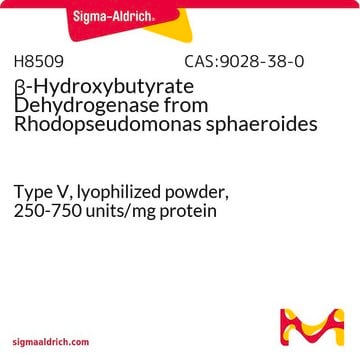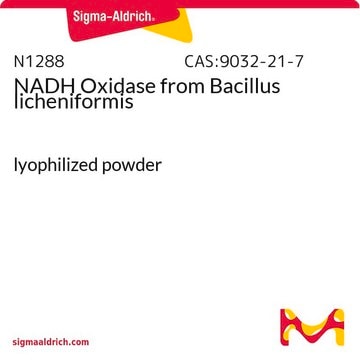H9408
β-Hydroxybutyrate Dehydrogenase from Pseudomonas lemoignei
lyophilized powder, ≥200 units/mg protein
Synonym(s):
(R)-3-Hydroxybutanoate:NAD+ oxidoreductase, 3-HBDH
About This Item
Recommended Products
biological source
bacterial (Pseudomonas lemoignei)
Quality Level
form
lyophilized powder
specific activity
≥200 units/mg protein
purified by
chromatography
foreign activity
lactic dehydrogenase ≤0.05%
malic dehydrogenase ≤0.1%
storage temp.
−20°C
Looking for similar products? Visit Product Comparison Guide
Related Categories
General description
Application
Biochem/physiol Actions
Unit Definition
Physical form
Storage Class Code
11 - Combustible Solids
WGK
WGK 3
Flash Point(F)
Not applicable
Flash Point(C)
Not applicable
Personal Protective Equipment
Certificates of Analysis (COA)
Search for Certificates of Analysis (COA) by entering the products Lot/Batch Number. Lot and Batch Numbers can be found on a product’s label following the words ‘Lot’ or ‘Batch’.
Already Own This Product?
Find documentation for the products that you have recently purchased in the Document Library.
Customers Also Viewed
Our team of scientists has experience in all areas of research including Life Science, Material Science, Chemical Synthesis, Chromatography, Analytical and many others.
Contact Technical Service








